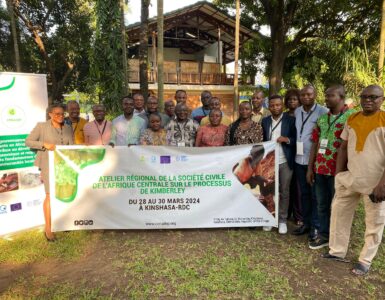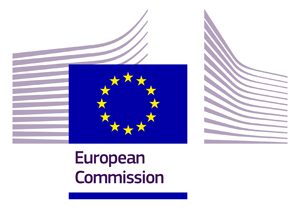Delegates representing 85 countries, civil society, and the diamond industry are gathering in Dubai from 13-17 May to attend the Intersessional meeting of the Kimberley Process (KP). This KP meeting should be a forum to evaluate the state of diamond governance, assess whether conflict diamonds are effectively banned from international trade, and give a final push to the ongoing and much-needed KP reform cycle.
This year’s KP chairman from the United Arab Emirates (UAE), Mr. Ahmed Bin Sulayem, has expressed great ambition. He wants his chairmanship to mark the ‘year of delivery’ by “solidifying KP’s ability to operate autonomously and with greater efficiency”. In the eyes of civil society, this ambition contrasts sharply with the bleak reality of a paralyzed KP, that proves, time and again, unable to address, or even only discuss, challenges at the core of its mandate.
The KP Civil Society Coalition (CSC) calls on all delegates traveling to Dubai to come well-prepared and not shy away from difficult but much-needed discussions. Citizens and consumers from across the globe should hold them accountable for the decisions they take, or don’t take… The challenges are many.
The reality of current-day diamond governance is the negation of what the KP was established for. Civil society expresses deep concern over the KP’s failure to seriously assess its role in exacerbating or alleviating ongoing conflicts, in particular, Russia’s aggression against Ukraine and the enduring conflict in the Central African Republic (CAR).
When consumers purchase this so-called symbol of eternal love they evidently don’t want it to contribute to bloodshed. As a global, UN-mandated scheme, to break the links between diamonds and conflict, the KP at the very least should offer a forum to address and discuss these concerns, explore different perspectives, and seek common ground.
However, a small group of participants managed to block any discussion for the past 2,5 years on the use of diamond revenues by Russia to fund its war against Ukraine. Consequently, the G7 countries acted independently to finally advance traceability requirements in the sector. The KP’s failure to provide a forum for discussion and cooperation on this pressing trade issue has significantly contributed to the turmoil and uncertainty currently pervading the supply chain.
Over a decade ago, the KP imposed an embargo on diamond exports from the CAR. Instead of addressing the root causes of the conflict, this action inadvertently transformed the country’s diamond sector into a magnet for conflict profiteers, criminal networks, and mercenary groups seeking to generate and launder illicit funds. Civil society strongly contends that both the KP and the CAR government can and should do much more to mitigate the negative impacts of the embargo on artisanal mining livelihoods. This should make the country and local communities the beneficiaries of CAR’s natural resources endowments, not rebels and mercenaries.
The KP CSC fervently hopes that the current crisis of the diamond trade will open more eyes to the urgency of expanding the long-outdated definition of conflict diamonds. This definition, however relevant 20 years ago, now only serves an unambitious status quo, and allows violence and human rights violations along the supply chain to go unnoticed for consumers. Diamonds stained by violence, social economic injustice, and environmental damages are everywhere in the supply chain.
The KP should embrace a much more comprehensive approach, not just banning diamonds funding rebel groups, but also harnessing diamond mining to drive development and enhance the economic, social, and physical well-being of communities. If it is to remain relevant, the KP needs to discard its many taboo topics. If it is to achieve “greater efficiency”, its lenient and box-ticking peer review process should evolve into a transparent and robust mechanism that ensures progressive country improvement.
Reputational risks loom large in this market segment and the Kimberley Process should prevent the diamond industry from collapsing under the burden of violence and injustice that affects communities and that is unacceptable to customers. Action is required from KP Participants during their meeting in Dubai. Transparency is key; they must clarify what the KP represents, what it can do, and what it can’t. Failure to do so risks undermining the very foundations of the industry that the scheme purports to safeguard. If this year is not the year of delivery, the downward spiral will not be stopped, and the KP should be held accountable for that.
For more information, please contact:
Jaff Bamenjo
Civil Society Coalition Coordinator
jnbamenjo@relufa.org




